Tryweryn: How reservoir of anger 'fuelled nationalist cause'
- Published
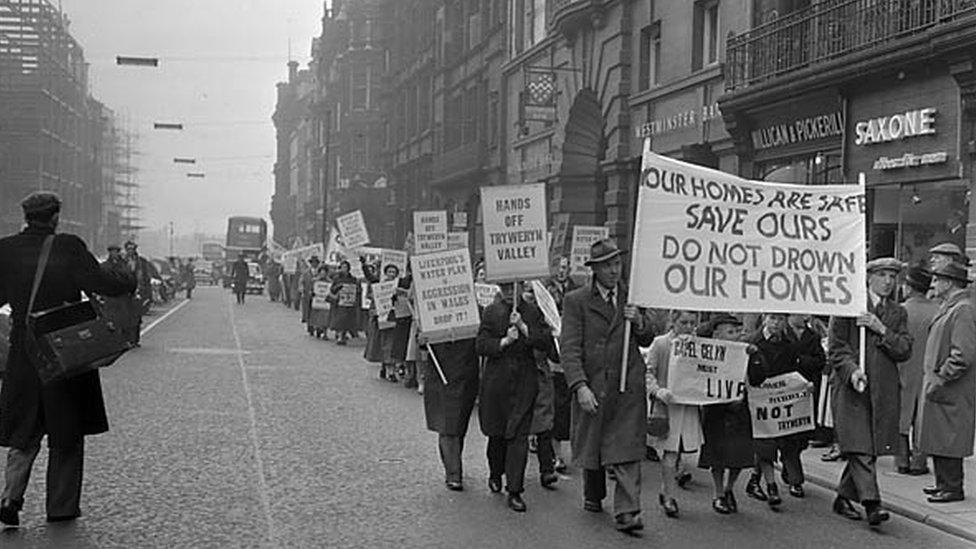
Capel Celyn residents stage a protest march in Liverpool, led by Plaid Cymru President Gwynfor Evans
There are a surprising number of "lost" villages lying under Welsh reservoirs.
Many of them, such as Llanwddyn in Montgomeryshire and Ynysyfelin, north of Merthyr Tydfil, were far more substantial than Capel Celyn, the hamlet which lies beneath the waters of Llyn Celyn - the Tryweryn reservoir - in Snowdonia.
It was the combination of time and place that made Tryweryn such a symbolic moment in Welsh history, and which sets Capel Celyn apart from all the other lost settlements.
The early 1960s in Wales was a period when a renewed interest in devolution coincided with a sharp decline in the number of Welsh speakers.
As one of the last virtually monoglot Welsh communities, Capel Celyn came to symbolise both the pressure on the language and the apparent powerlessness of Welsh MPs to protect Welsh interests.
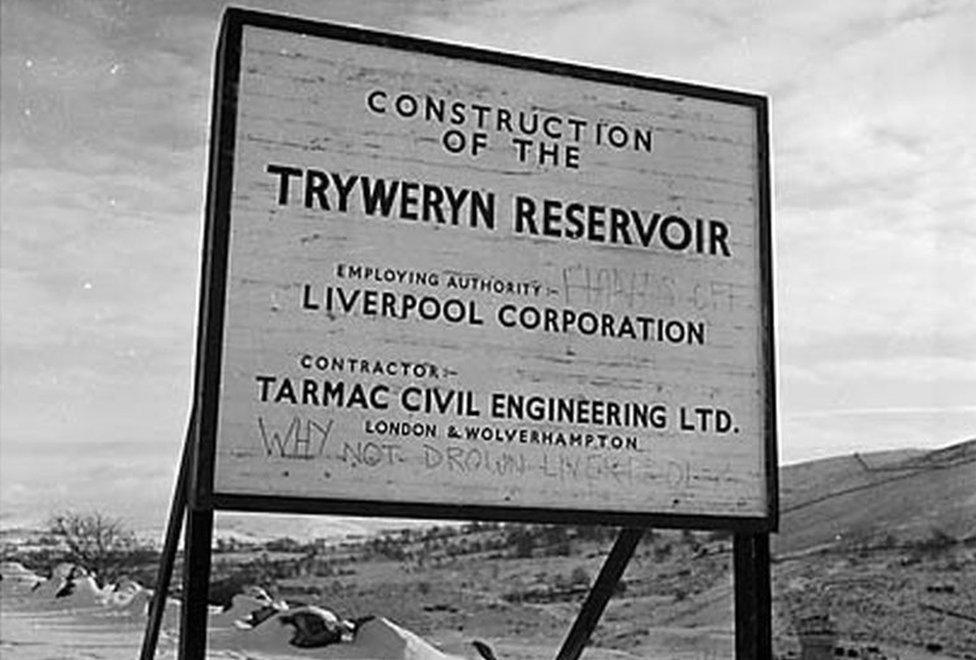
An English-language sign reminded residents of the fate of their village
Despite near unanimous opposition from Welsh politicians, mass protests and an attempt to bomb the site of the dam, the plans of Liverpool Corporation moved forward relentlessly.
For Plaid Cymru, Tryweryn was to prove transformational - although that was not apparent at the time.
The results of the 1964 general election, held while the controversy was at its height, were disappointing for the party - even in Meirionnydd, where the reservoir is located.
However, the campaign led to an influx of new party members, and the decision to reject the use of civil disobedience tactics during the campaign earned the party credibility and respect in Welsh-speaking communities that had previously viewed Plaid Cymru with suspicion.
Even so, it was Labour which swept the board in rural Wales in the 1966 general election, the first to be held after the completion of the project.
Just a few months later though, Plaid Cymru won their first ever seat in parliament in the Carmarthen by-election.
It was a victory which might never have occurred had Capel Celyn not disappeared beneath the waters of Llyn Celyn.
- Published21 October 2015
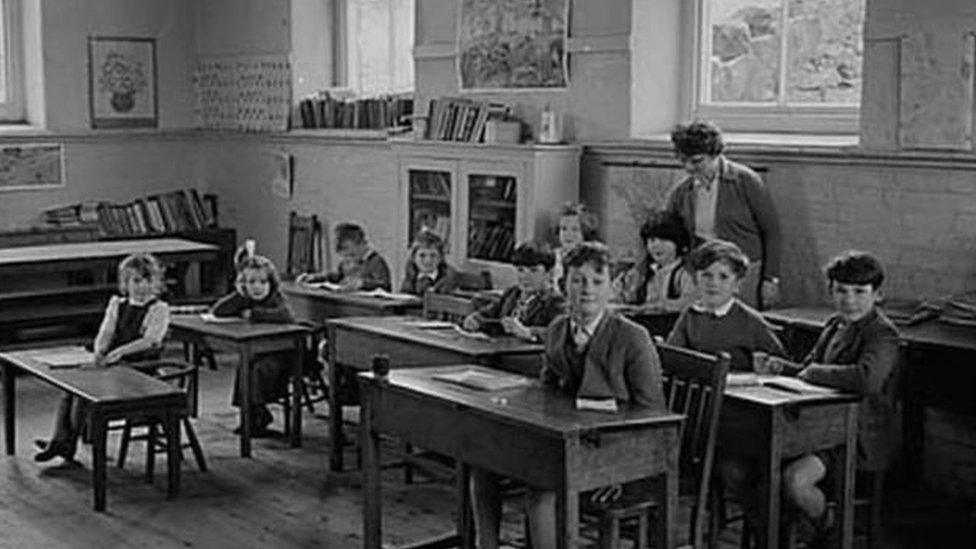
- Published14 October 2015
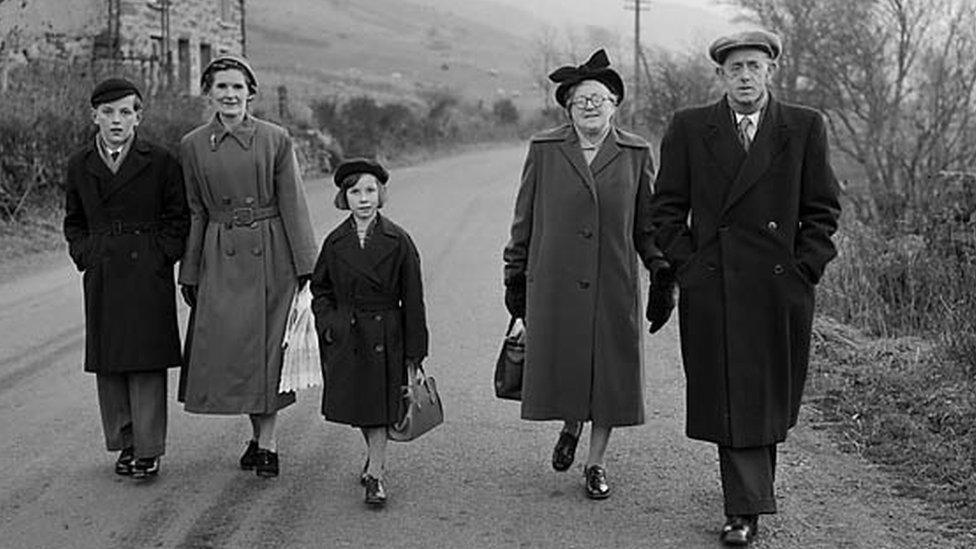
- Published14 October 2015
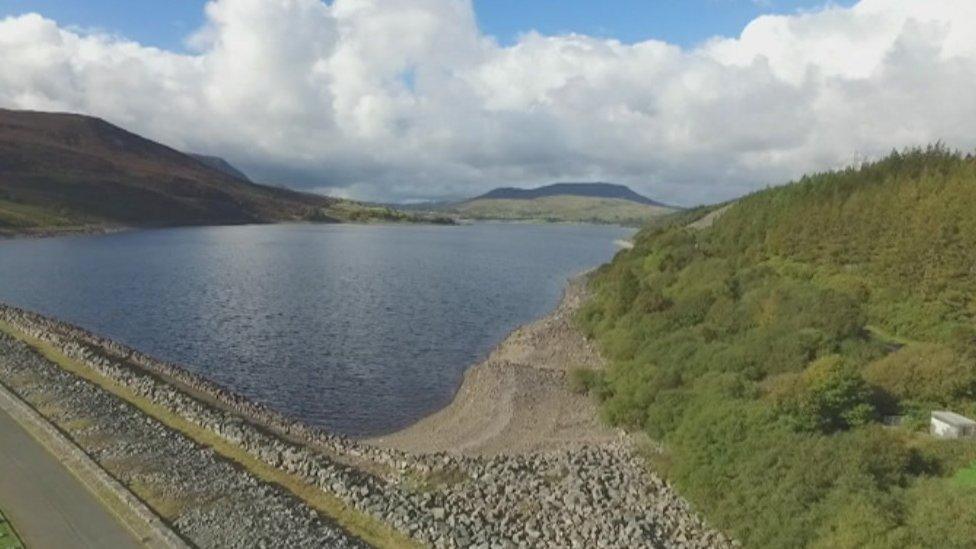
- Published22 June 2011
